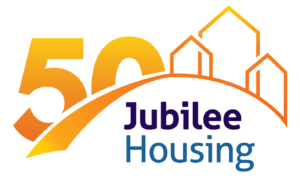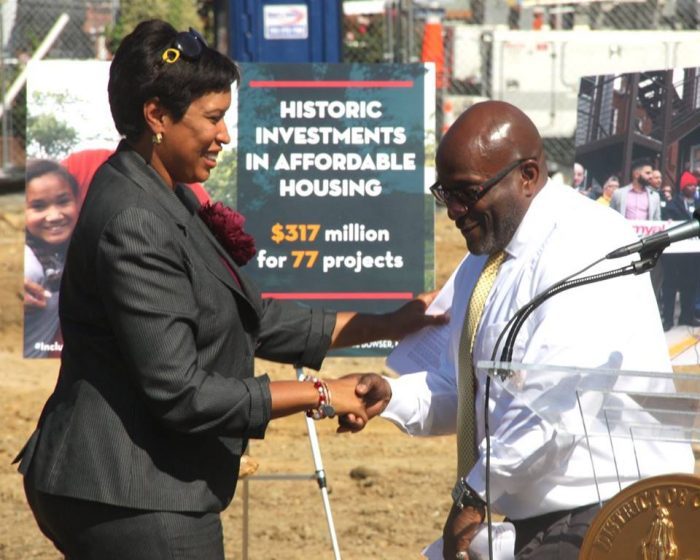As District officials consider the city budget for Fiscal Year 2019, Jubilee calls for increases in two key programs that help create housing opportunities for residents with the fewest financial assets. The first is a $5.5 million increase in Local Rent Supplement Program (LRSP) funding dedicated specifically to producing homes affordable for residents making 30 percent of area median income (AMI) or lower. The second is a $20 million increase in the base amount of the city’s Housing Production Trust Fund.
Jubilee’s D.C. supporters can add their voices to the appeal by Jubilee and other non-profit developers, including the Coalition for Nonprofit Housing & Economic Development, by contacting their City Council members prior to the budget vote on May 15.
Jubilee applauds Mayor Bowser, who, with the backing of City Council, has raised D.C.’s per capita investment in affordable homes to the highest of any major city in the country. Unfortunately, the challenge continues to outpace the investment—both in trust fund dollars and in the additional support required to use those dollars to produce homes affordable to D.C. residents with the lowest incomes.
Since 2001, the trust fund has generated more than 10,000 affordable homes, according to a recent audit. During that time, Jubilee created 230 affordable homes, using $16 million in trust fund investments. Yet, between 2005 and 2015, D.C. lost almost 41,000 units renting for $600-800 and added more than 99,000 units renting for $2,400 and up.
More recently, roughly half of the projects submitted for trust fund dollars in the last two funding rounds went unfunded, because the supply of eligible projects outpaced available dollars. Increasing the base amount from $100 million to $120 million would leverage additional private debt and equity and would produce approximately 200 more affordable units—depending on the types of projects.
The D.C. Department of Housing and Community Development closed on more than $130 million in trust fund investments in 2017—a city record—and appears on track to match that amount this year, proving that a $20 million increase can be put to work immediately. However, without additional funding now, the few properties still available will be bought by market-rate developers.
Equally critical is that the city combine an increase in the trust fund base with a set-aside of at least $5.5 million in LRSP dollars for homes affordable to households with extremely low incomes. Developers like Jubilee need LRSP funds to achieve affordability at the deepest levels. Without matching enough rent support with trust fund dollars, the city likely cannot meet the legal requirement that 40 percent of trust fund investments be directed to properties affordable to residents making 30 percent AMI or lower.
The Mayor’s proposed budget only provides LRSP funds for designated uses, leaving a gap for projects seeking trust fund investments.
“Jubilee and other non-profit developers use LRSP funds to build homes affordable to those with the lowest incomes,” said Jim Knight, Jubilee’s executive director. According to the DC Fiscal Policy Institute, 63 percent of D.C. renters with extremely low incomes spent at least half of their income on housing in 2016, the most recent year for which data is available. Two-thirds of the units in Jubilee’s buildings are affordable to those households and will remain affordable for 40 years.
“That’s just not feasible without an operating subsidy,” Knight said. “In higher-rent buildings, the more expensive units can cross-subsidize the 30 percent units. In buildings like ours, that’s not an option.”
Knight said Jubilee and other nonprofit-developers are willing to take on more financially challenging projects as part of their missions to meet the needs of those with the fewest assets—even if that means leaving funds tied up in a project for decades.

